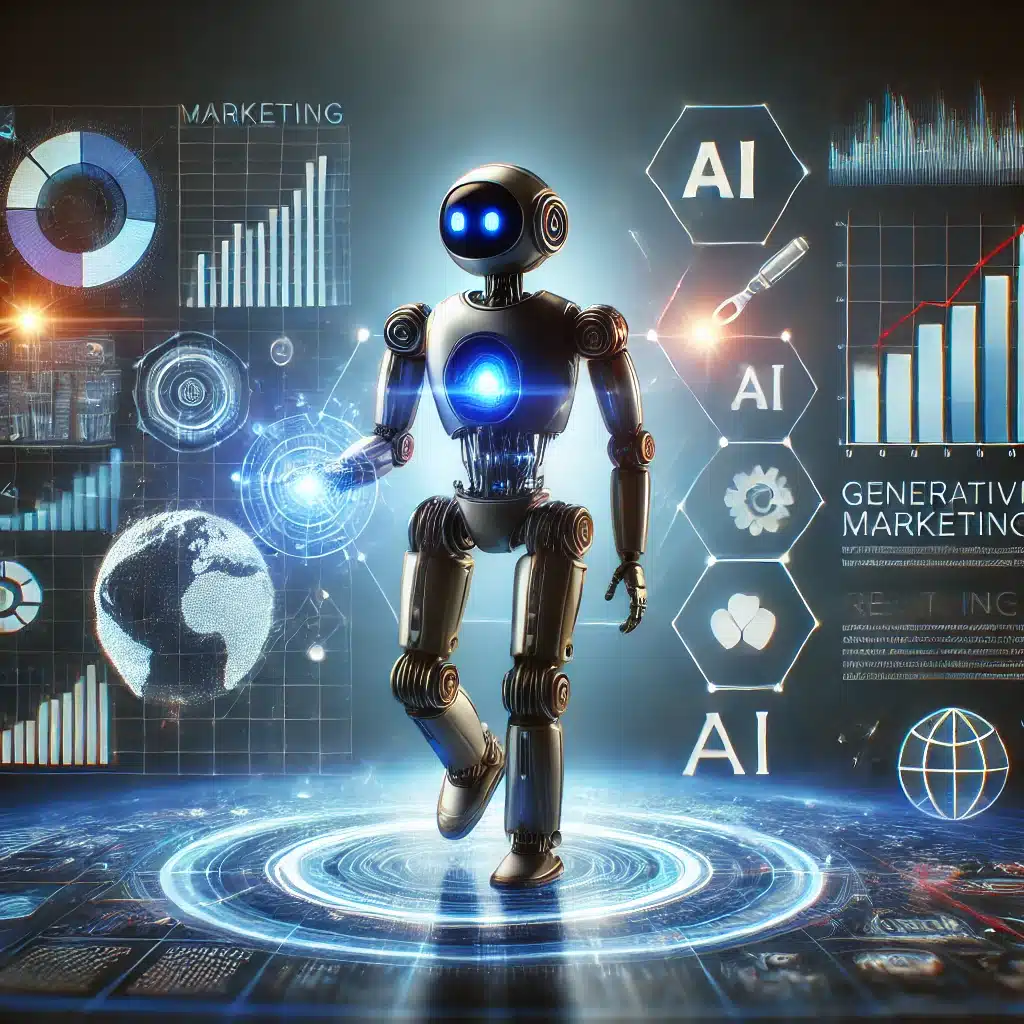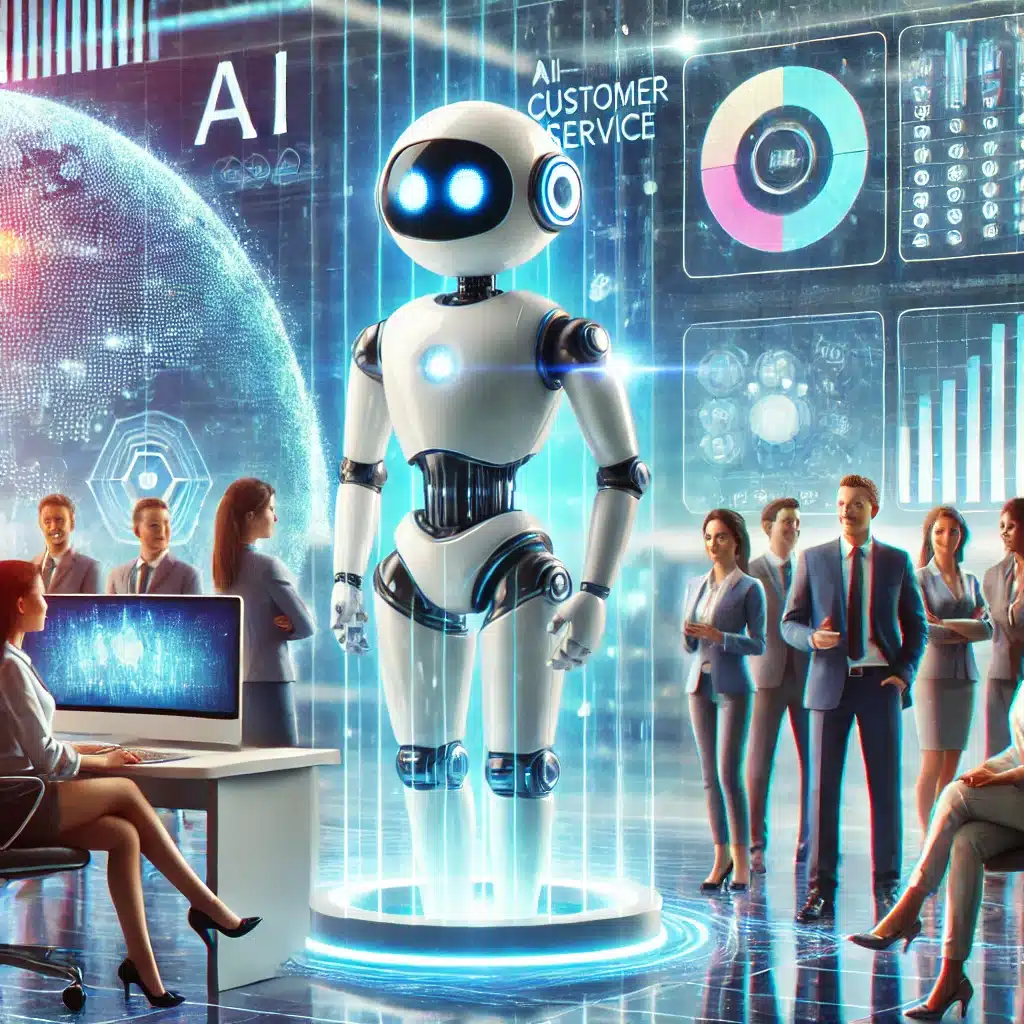Companies increasingly pivot to artificial intelligence to revolutionize their marketing across different channels in the fast-paced and constantly evolving digital environment. Artificial intelligence AI in marketing can create engaging, relevant experiences for customers while optimizing operations and outcomes in a campaign. This article takes an in-depth look at how AI is used in cross-channel marketing by showing how it can help achieve a seamless customer experience across various channels.
What is the Role of AI in Omni-Channel Marketing?
How does AI enhance channel marketing strategies?
AI helps significantly improve channel marketing strategies. It allows marketers to analyze large volumes of data to derive actionable insights into customers. With the analytics supported by AI, a marketer can identify a group of customers and tailor marketing to such group-specific needs. This ability allows businesses to optimize their campaigns across different marketing channels, ensuring they deliver the right message at the right time. Secondly, AI algorithms can keep track of customer interactions across many platforms, enabling marketers to refine their strategies using real-time data. This can help improve their overall cross-channel marketing effectiveness.
What are the benefits of using AI in marketing campaigns?
Many benefits result from integrating AI into marketing campaigns, such as increased efficiency, improved targeting, and customer satisfaction. AI enables marketers to focus on strategic decision-making rather than mundane operations by automating repetitive tasks. Moreover, AI helps personalize the customer experience through the analysis of behavioral data and predictions of future behaviors, thus enhancing customer engagement and brand loyalty. In addition, AI enhances ad spend optimization by identifying which channels work best, thus making marketing in that regard more cost-effective because one can get higher returns in comparison to investment.
How can AI optimize the customer experience across channels?
AI can significantly better optimize the customer experience by using their preferences and behaviors across every different touchpoint. Through machine learning, AI systems keep on learning from customer interactions to offer personalized content, products, or services based on the preferences of an individual. At this level of personalization, the customer journey gets interesting as customers are attracted more toward brands that understand them better. Additionally, AI tools can make the transition between channels smooth and ensure that customers have a consistent and cohesive experience, whether they interact through email, social media, or a company website.
How Can Marketers Use AI for Personalization in Cross-Channel Marketing?
What AI tools can be employed for personalized customer engagement?
There are many AI tools that marketers can use to enhance personalized customer engagement. For example, AI-powered chatbots can provide real-time customer support by answering queries and guiding users through the purchasing process. Predictive analytics tools can analyze customer data to forecast future needs and preferences, enabling marketers to tailor their communications. Email marketing platforms that utilize AI can segment audiences effectively and personalize email campaigns to ensure that the content resonates with different customer segments. These tools not only enhance customer engagement but also increase the probability of conversion with relevant messages.
How does AI-driven personalization impact customer behavior?
AI-driven personalization significantly impacts the behavior of the customer. It creates an emotional relationship between the brand and the consumer. The more the customers are given personalized experiences that are of interest to them, the higher the chances of engaging with the brand, thus enhancing customer satisfaction and loyalty. Personalized recommendations may also increase average order value as it is likely to make customers check other products or services. Brands can use AI to understand and react to customer behaviors to craft appropriate marketing strategies that enhance the customer experience and bring back more business.
What are the challenges in implementing AI for personalization?
While the benefits of using AI in personalization are monumental, there are several obstacles to the implementation of such technologies. One significant difficulty is the requirement for high-quality customer data to train the algorithms of AI effectively. Inadequate or outdated data may result in poor predictive power and poor marketing strategies. Further, marketers need to address privacy issues while ensuring that they are following all the regulations like GDPR to collect and use customer data. Moreover, incorporating AI tools into existing marketing functions can be challenging because the organization’s culture and processes have to be changed, which is a resistance that teams who have been following traditional marketing may have.

What AI Capabilities Are Essential for Multi-Channel Marketing?
How can predictive analytics improve marketing strategies?
Predictive analytics is one of the most important AI capabilities that can significantly enhance marketing strategies by providing insights into future customer behavior. Predictive models can identify trends and patterns from historical data to inform decision-making. For instance, predictive analytics could be applied in such ways as determining when it would be best to contact a customer or which product will probably appeal to the right group. This understanding helps companies develop proactive marketing campaigns that not only respond to but also foresee the needs of customers, and thereby increase the efficiency of multi-channel marketing strategies.
What role do algorithms play in AI-powered marketing?
Algorithms are the backbones of AI-powered marketing, which enable the processing and analysis of vast amounts of customer data. These algorithms can segment customers, predict behaviors, and automate marketing efforts across different channels. For example, machine learning algorithms can analyze customer interactions to identify which marketing strategies yield the best results, allowing marketers to optimize their campaigns continuously. By exploiting these algorithms‘ power, businesses can bolster their marketing operations to survive in this fast-paced landscape of digitization.
How do AI capabilities streamline marketing team efforts?
AI capabilities make it possible to smooth out efforts by a marketing team due to its automation of redundant tasks and providing insights towards strategic decision-making. Marketing teams thus can focus more on creative and strategic endeavors rather than being mired by redundant processes. AI tools can also facilitate collaboration within marketing teams by providing a centralized platform for data analysis and campaign management. By leveraging AI, teams can work more efficiently, enabling them to respond quickly to market changes and customer needs, thus enhancing their overall effectiveness in delivering marketing campaigns.
What Are the Best Practices for Implementing AI in Marketing Campaigns?
How can marketers automate marketing efforts using AI?
AI allows marketers to automate marketing efforts using tools for managing email marketing, scheduling posts on social media, and handling customer relationship management. Using AI-powered marketing automation platforms can analyze customer interactions that will trigger targeted campaigns in specific behaviors, such as cart abandonment or product interest. The extent of automation saves time but at the same time, allows for timely and relevant marketing messages to reach customers, hence better engagement rates. In addition, automation can also make marketing operations more efficient, making it possible for businesses to scale their efforts without a corresponding increase in resources.
What are effective attribution models for AI in marketing?
Attribution models help understand the influence of various marketing channels on customer conversion. AI can improve the attribution models by analyzing the customer journey across several marketing channels, providing insights into which touchpoints contribute most to conversions. Advanced attribution techniques, such as multi-touch attribution, help marketers understand the interplay between different channels and how they influence customer behavior. Such understanding helps marketers strategically allocate their marketing budgets and resources so that investments are made in the most effective channels.
How do we analyze customer data for improved marketing outcomes?
Analyzing customer information for better marketing results thus requires using AI tools that efficiently process and interpret large sums of data. Marketers can use data analysis to identify trends, customer preferences, and behaviors to guide future campaign directions. With the help of cluster algorithms, businesses can segment their customers and find the right message for each group, making the marketing messages resonate with every group. In addition, it can help marketers understand the perceptions and opinions of customers, which allows them to change their strategies to meet the needs of customers. Data analysis is constant, and businesses can get better outcomes from their marketing efforts.
How is AI Revolutionizing Customer Engagement in Marketing?
What techniques enhance customer journeys through AI?
AI is revolutionizing customer engagement by applying techniques that improve customer journeys at each touchpoint. For example, recommendations for a specific product based on past purchases may direct the customer to appropriate choices and enhance the shopping experience. Additionally, AI-powered chatbots can offer real-time support by answering queries and resolving issues in real-time, which increases customer satisfaction considerably. Finally, dynamic content delivery based on AI analytics allows marketers to tailor messaging according to the behavior of customers, making each interaction meaningful and engaging.
How does AI analyze large amounts of customer data?
AI analyzes large amounts of customer data through advanced algorithms that process, categorize, and interpret data efficiently. More so, machine learning models will be effective in the process of identifying patterns within data sets, which marketers would find almost impossible to discern if relying on manual analysis. AI can also process unstructured data, including customer feedback and social media engagements with the help of natural language processing. This can be provided as a complete view of a customer’s sentiment to a firm, and businesses can improve their marketing strategies on other channels through data-driven choices.
What are the future trends of AI in cross-channel marketing?
The future of AI in cross-channel marketing promises to bring even more sophisticated tools and techniques that enhance personalization and engagement. As AI technology continues to evolve, we expect to see advancements in predictive analytics that provide deeper insights into customer behavior and preferences. Additionally, integrating AI with emerging technologies, such as augmented reality and virtual reality, will create immersive marketing experiences that captivate customers. Furthermore, advancements in data privacy and ethical AI use will shape how businesses collect and analyze customer data, ensuring compliance while delivering personalized experiences. Overall, the continued integration of AI in marketing strategies will undoubtedly create a more seamless and engaging customer journey across various channels.



